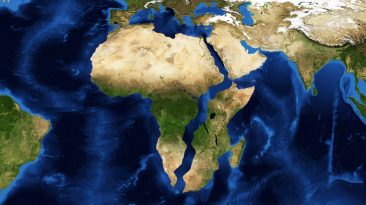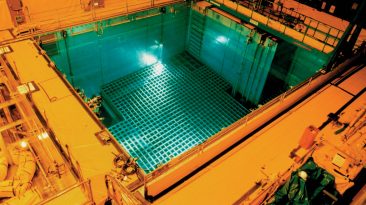What if humanity grew to be so technologically advanced that we were able to leave our Solar System and spread across interstellar space?
Would we hop from one exoplanet to another, colonizing everything on our way? How could we make traveling across the Universe possible?
And what would our space civilization look like? No human has ever been outside of our Solar System, and only a few of us have actually left the Earth. Even those who blasted out of here in a rocket didn’t go too far.
We’re limited by the laws of physics. There are billions upon billions of planets out there. But they are so far away, that it would take us a very long time to reach them.
If we jumped into the fastest spacecraft ever built, it would take us over 70,000 years to get to our neighboring star system Alpha Centauri. Even if we could accelerate a spaceship to 99% the speed of light, over 26,000 years would pass until we arrived at the center of our own galaxy, and another 2 million years until we set foot in the nearest neighbor, the Andromeda galaxy.
How could we go about expanding our civilization into space if we’re so terribly slow? To become an intergalactic civilization, we’d need to break the speed limit of the Universe. But for all we know, traveling at the lightspeed is physically impossible, nevermind outperforming it.
The Universe is enormous, possibly infinite. And our lifespans are too miserably short to cover those kind of distances even at near-light speeds. But let your curiosity take over and imagine we were a civilization that could approach lightspeed and travel among stars.
We’d start with Alpha Centauri, our neighboring star system. Who knows – maybe the exoplanet orbiting this three-star system would turn out to be habitable. Then, we’d push ourselves out further to discover the billions of other worlds.
Not all of them would be suitable for us to settle in. In astronomy, a habitable world is a planet that is just the right distance from its Sun-like star to be able to sustain liquid water. But the reality is, humans require so much more than that. Atmosphere, gravity, temperature – they’re all important. It’s unlikely we’d find another planet just like Earth.
But we could build self-sustaining Earth-like biomes on our giant spaceships, where humans would live for generations. Or, we could terraform some rocky exoplanets. First, we’d harvest water from a few ice comets. Then, we’d alter the planets’ atmospheres to resemble Earth’s. Anything to be able to breathe in fresh air again.
Even though space would be so accessible, people wouldn’t travel around the Universe much once the new colonies were established. Even at the speed of light, it would take generations to make a trip to the other side of the Universe. Space is just too vast, remember?
In this new world, you’d get to travel among stars only if you were a part of a ship’s crew, a colonist, or a space miner. We’d send robots to perform our intergalactic chores. Robots don’t eat, sleep, or go to the bathroom. They can withstand high levels of radiation and extreme temperatures – all the things that would kill a human being.
But if space travel is something you crave, consider pursuing a career as a postal carrier. Because the most reliable way to communicate might be… through the mail. Surprised? Well, our satellites rely on radio waves to transmit information. Even though these waves travel just as fast as light, they lose their strength over long distances. It’s like being too far away from your WiFi router.
If humanity became an interstellar society, we humans would end up spread out across hundreds of light years of space. At least we’d give Earth a break, and allow it to recover from our mistreatment.
Subscribe to What-If on Youtube or follow the show on Facebook Watch.
Sources
- “How Humans Might Outlive Earth, The Sun…And Even The Universe”. Powell, Corey, 2017. NBC News. Accessed November 26 2018.
- “The Myths And Reality About Interstellar Travel”. Nogrady, Bianca. 2018. bbc.com. Accessed November 26 2018.
- “If Earth Falls, Will Interstellar Space Travel Be Our Salvation?”. 2015. The Conversation. Accessed November 26 2018.
- “What Mandates Travel In An Interstellar Society?”. worldbuilding.stackexchange. Accessed November 26 2018.



























